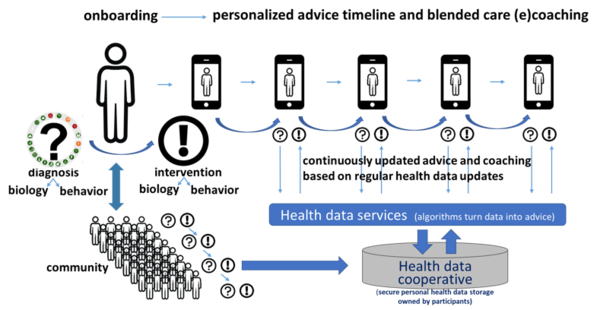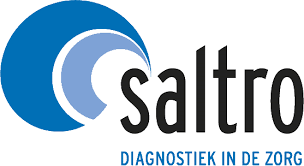The type 2 diabetes health data community
Type 2 diabetes (T2D) is a highly prevalent chronic disorder. T2D is generally perceived as incurable and progressive, and treated by means of medication. However, sustainable changes in diet and physical activity can effectively reverse T2D, also impacting other outcomes and costs. The move from T2D care to cure needs a switch from professional driven care to citizen-patient centered empowerment.
Sustaining lifestyle changes is a challenge, but combining dietary and physical activity advice with behaviour change support fitting the needs of an individual promotes self-management of T2D. Optimal use of personal health data, including data sharing within the T2D community, makes effective personalised health advice possible, and promises to shape a sustainable T2D reversal strategy.
A key driver in this transition is the control over personal health(care) data by T2D patients. This project builds and implements a prototype personal health data ownership system, where this data is governed and owned by a Health Data Cooperative community. This data is translated into personal health advice via algorithms, and presented to the individual members of the community. Also, under proper ethical and legal control, the health data will become a rich source for research. Most of these components are already available or currently built.
This project builds a health data community within the National Diabetes Challenge. The data collection is organised together with the consortium partners. The data governance will be arranged by the Holland Health Data Cooperative. A number of research and ICT partners develop and implement the advice systems and data flows according to FAIR principles and current security standards, and provide a user interface. Existing community building and behavioral change methods are incorporated. The project is embedded in the Netherlands Innovation Center for Lifestyle Medicine (NILG) initiated by TNO-LUMC, facilitating optimal collaboration and expansion.











